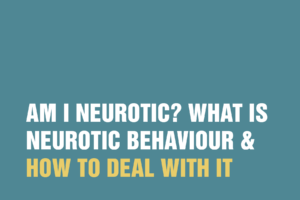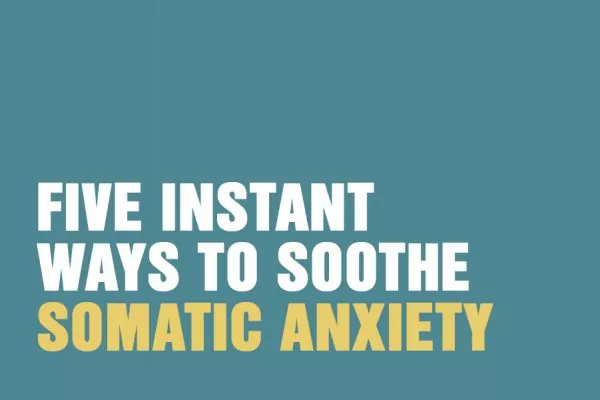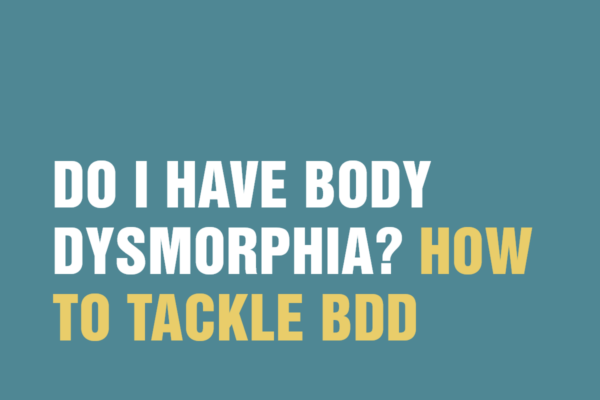It’s the time of year that many parents and carers have been preparing for: the moment when their youngest offspring (or only child) heads off to university or college. So much time, effort and anticipation go into this moment, what with all the highs and lows of results, the ins and outs of decisions and plans, and the angst about next onward steps.
For the young person leaving home, there’s a whole path ahead of new people to meet and purpose to find, but for the parent or carer left behind, the reality is – their baby has left home.
The feelings that arise from this sudden realisation that you’re now on your own, without your now adult children to nurture, can hit you with some force. Your baby birds have grown their wings and flown the nest – leaving you with what is popularly called ‘empty nest syndrome’. While this isn’t a psychological condition diagnosable by psychiatrists, empty nest syndrome definitely has a cluster of symptoms that many parents will be familiar with once they find themselves on their own. And alone with their partner for the first time in a couple of decades, which can bring up a whole other set of issues.
Let’s take a deep dive into this topic – what is empty nest syndrome? Can we avoid it altogether as parents? If not, what are some coping mechanisms that can see us through this difficult time?
What is empty nest syndrome?
First, let us point out that empty nest syndrome isn’t actually a clinical diagnosis. Of course, that doesn’t make it any less real for the person dealing with it. Empty nest syndrome is simply a feeling of immense sadness and loss that occurs when your last child has flown the coop – they’re growing up, and all of a sudden, the parent left at home has to deal with an identity shift.
Empty nest syndrome may in fact take some parents by surprise – especially if they have been actively encouraging their children to try new things, become more independent and see what the world has to offer. Regardless, letting go can be painful, especially when you have no other children around to distract you. You might be missing the day-to-day responsibilities all parents have (no matter how much we complain!) or you may just be missing the companionship. What’s more, you might be plagued with worry – how will your child cope away from you? Will they be okay? Can they take care of themselves?
Empty nest syndrome can affect anyone – in fact, recently Gordon Ramsay has spoken out about his experience with empty nest syndrome, which was a much-needed eye-opener for some people. It’s important to know that you don’t need to be an overly-sensitive soul to struggle with empty nest syndrome, and men can suffer as much as women.
How might empty nest syndrome affect you?
All parents experience empty nest differently. Empty nest syndrome might affect you differently to your children’s friends – after all, everyone is unique. However, most people struggling with empty nest experience a degree of anxiety, along with a profound sense of loss – almost a feeling of grief. Some studies have shown that this can, in some cases, result in depression or marital conflicts. It may just leave you questioning your own identity and purpose.
Some signs of empty nest syndrome
Let’s look a bit closer at the signs of empty nest syndrome. If you have empty nest, you might feel:
- A bit odd and lost, and perhaps upset and weepy for no apparent reason.
- Restlessness and not knowing what to do with yourself.
- A vague but persistent feeling of emptiness inside. This can be a sign of some depressive feelings.
- A frantic need to search for something to fill the gap your kids have left.
- Concerned that your kids are okay, with an urge to reach out and seek reassurance from them more than is usual. This can lead to anxious responses.
- A sense of euphoria at being free to do whatever you want – yet frustration at not knowing how to direct that energy.
- Wondering what will happen between you and your partner now that you don’t have the kids to distract you.
Can I prevent empty nest syndrome?
Is there a way to just bypass this awful period altogether? Unfortunately – not really. There is no real, definitive way to prevent or avoid empty nest syndrome altogether – just like we can’t avoid or prevent grief. However, there are some ways you can prepare yourself for the change, which may cushion the blow and help you (and your child) with this often difficult transition.
Preparing for an empty nest
When your child leaves, you want to be in the best possible position, mentally. This means a degree of preparation for the empty nest phase. and for your new life. Most parents find that they cope better emotionally when their children leave if they are pro-active. We recommend the following steps to put you in the right frame of mind:
1. Get invested in the preparation phase
Parents usually have some buffer time before their children leave. Make the most of this time. Help to prepare your child. Make sure they have all the skills, supplies and equipment they might need. Help them prepare for their new challenges in whatever way you can, without being overbearing. Help them research – do they know much about the new town or city they’re moving to? Do they know what to expect? Can they cook basic meals? Knowing all this will help to put your mind at ease and remind you – you raised a capable child, and you should be proud.
2. Take the time time to reassure your child (and yourself)
It might be normal for a child to leave home, but that doesn’t mean it’s easy – for you or for your child. Your child might be feeling a lot of mixed emotions. For example, they want to go out and explore the world, but they know they will miss the comfort and predictability you’ve offered them for years. Take the time to explain that although they might be leaving your house, they will always have a home with you. They always have a safe place to come back to, and you’ll always be an integral part of your child’s life, even if you’re miles apart. Remind them that they can always pick up the phone and call or text.
3. Begin to develop interests and hobbies outside of parenthood
You don’t want to feel completely lost when your child leaves. The best way to avoid this is to take the time, before your child heads off, to develop new interests – something you find fulfilling. Consider everything you’ve wanted to do before now, but time has been lacking. These interests will be there for you when your child goes, and they’ll also help to keep your mind busy.
How long does empty nest syndrome last?
There’s no clear-cut answer to this question, unfortunately – it will be different for everyone. Your ability to adapt will depend on a number of factors, including pre-existing mental health concerns, whether or not you are dealing with other large lifestyle changes, your relationship status and whether or not you have a full, active life outside your children. However, it has been suggested by some psychologists that it can take between 18 months and two years to transition from ‘mum mode’.
14 tips on how to deal with empty nest syndrome
If you’re in the full grips of empty nest syndrome, you might be looking for ways to cope – thankfully, there are ways to make yourself feel better and to adapt. Here are 14 ways to deal with empty nest syndrome:
1. Allow yourself time to grieve
Realise that your children moving on is a loss and that your feelings may go in waves of sadness, anger, denial and bewilderment – especially in the early stages. Don’t fight it or beat yourself up. Just give yourself some time and space to deal with your emotions.
2. Acknowledge how you feel
Embrace your feelings. Meet yourself where you are, instead of pushing those feelings away. If you battle them, they’ll only come back stronger another time. You might want to consider counselling if you feel you’re struggling.
3. Focus on your new chapter
Resist the urge to call your grown-up child night and day. They need time to adjust to their new surroundings, as do you. Allow space all round, and learn to tolerate the feelings that come up around that.
Accept that you’re in a new stage of life. You can look back and regret, or look forward to what’s new.
4. …but delay any drastic changes
Some parents try to fight empty nest syndrome by throwing themselves fully into something new and drastic – this could mean moving house or a job change, or retiring, for example. While it may be tempting, this is a time of change, so it’s wise to give yourself some time to adjust before jumping into another big life decision.
5. Plan a holiday
If big plans are out of the window for now, a small plan might be just the ticket. You might want to consider a fun holiday abroad or a staycation – it’ll give you something to look forward to.
6. Set new goals
Most of your goals in the past may have revolved around your children – getting them set up for life, helping them with their education, helping them find a new job – so it’s likely time for new goals. Take time to consider what’s important to you, what you want out of life and what you really enjoy.
7. Get active
Physical activity can be a really effective means of boosting your mood – in fact, it can also help with depression. When you exercise, you release feel-good hormones that can help you through tougher times. Whether it’s Zumba, strength training or running, every little helps.
8. Set new boundaries
Readjust your perspective on your relationship with your children. They will still need you, just in a new and different way. Remember to set boundaries around what you feel is acceptable for you and them. Phone calls once a week, for example, may be a healthy and manageable balance.
9. Reframe your loss
Allow feelings of pride and achievement as an antidote to your loss. Remind yourself what a great job you’ve done bringing up your children to reach a stage where they’re ready to take the next big step in life.
10. Reconnect with yourself
You may have more time to pursue work projects, or think about taking up a fun activity or more social invitations. Life goes on long after your children have left home.
11. Reconnect with your partner
If you’re in a relationship, then talk to your partner about how you’d like your lives together to shape up going forward. If on your own, in time, think about dialling up your social interactions.
12. Take time to reflect
Journal regularly and freely, to help find self-guidance, and to help you reflect on where you’ve been and where you’re going.
13. Focus on the positives
It can be hard to focus on positives when you feel down, but it can genuinely help. Consider what you have in your life, what you’ve built and the contributions you’ve made. Remind yourself that you still have your child, after all – they’re just a little further afield.
14. Talk to other empty nesters
When experiencing this period of your life, it can help to talk to other people who are experiencing the same thing. It can give you inspiration for keeping positive, remind you that you’re okay and reassure you that you’re not alone.
When to seek help
If you feel you’ve tried everything and nothing is getting better, then it’s time to seek support. It might be that you need some couples counselling or perhaps you would benefit from some one-on-one psychotherapy. Professional help can ease the transition and give you coping mechanisms to see you through, while providing an understanding ear to bend.
If the emptiness of your nest is becoming too hard to bear, get in touch with our team to arrange some supportive counselling sessions to help you through this initial period and beyond. Call 020 8673 4545 or email [email protected] to discuss booking an initial appointment. Sessions are available seven days a week at our Clapham and Tooting branches.







